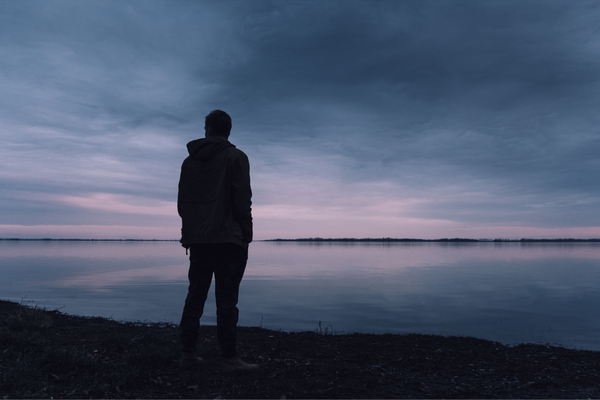Sex/Porn Addiction
What is it?

Sex addiction is an umbrella term that can include behaviours such as pornography use, hook-ups, chat rooms, masturbation, sex, affairs, casual sex, risky sex, buying sex, or fantasies.
What determines an addiction isn't the thing itself, but your relationship to it. Most forms of sexuality are healthy, but if they are used to escape, you continue to use despite negative consequences, you are unable to stop, it's as if it has a life of its own, and you feel shame when using, then we're likely talking about an addiction.
You can do a sex addiction screen here, if you're unsure whether or not this is an issue for you. Another thing you can ask yourself is: (1) is this behaviour responsible, (2) is it reciprocal, and (3) does it cause harm?
To speak to Lee, our registered psychologist who specializes in sex addiction, click book now.
What determines an addiction isn't the thing itself, but your relationship to it. Most forms of sexuality are healthy, but if they are used to escape, you continue to use despite negative consequences, you are unable to stop, it's as if it has a life of its own, and you feel shame when using, then we're likely talking about an addiction.
You can do a sex addiction screen here, if you're unsure whether or not this is an issue for you. Another thing you can ask yourself is: (1) is this behaviour responsible, (2) is it reciprocal, and (3) does it cause harm?
To speak to Lee, our registered psychologist who specializes in sex addiction, click book now.
What does treatment look like?
Our goal is two-fold: (1) increase strategies to effectively deal with urges and (2) heal underlying factors such as pain, shame, trauma, and abuse that fuel the addiction. Some people mistakenly overvalue the strategies because they desperately want the behaviours to stop. Even if this were to be successful (though research shows it's only effective short-term), it isn't the same as recovery. In AA, we call this dry-sober. The real work of your recovery is going to be exploring contributors to your addiction, challenging social systems and self-concepts, identifying and committing to healthy sexuality, and opening up to your emotions.
Based on the dose-dependent method, treatment typically follow this pattern:
I also recommend that your partner seeks out their own counselling services. Look for someone with training and experience working with betrayal trauma.
Based on the dose-dependent method, treatment typically follow this pattern:
- Sessions 4-6: There is an increase in well-being
- Sessions 8-10: There is significant symptom reduction
- Sessions 12-20: Established behavioural change
- Session 26: Peak optimal results
I also recommend that your partner seeks out their own counselling services. Look for someone with training and experience working with betrayal trauma.
Resources

There are many different 12-step programs that are free to attend. These can be helpful in continuing vulnerability, being accountable, establishing helping friendships, and learning more about addiction and recovery. Not all groups will be the same, so you may need to shop around before finding the right place for you.
Here's some free online support groups. They have lots of options and even ones for partners as well:
Seeking Integrity
Webinars and Drop-In Discussion Groups - Sex and Relationship Healing
Or for a 12 step group there is:
Sex Addicts Anonymous: https://saa-recovery.org/meetings/?loc=calgary&ll=&v=
Sexaholics Anonymous: http://www.calgarysa.org/meetings-contact
Sex and Love Addicts Anonymous: slaafws.org
Sex Addicts Lifeline: https://sal12step.org/find-a-meeting/
A great reading resource is Unwanted by Jay Stringer: Unwanted: How Sexual Brokenness Reveals Our Way to Healing: Stringer, Jay: 0031809001455: Books - Amazon.ca
Here has an assessment you can do that looks at (1) current unwanted sexual behaviour, (2) core fantasies, (3) childhood drivers, (4) present-day experiences, and (5) action planning: Start your Journey - Sexual Behavior Assessment
Or you can go to his website Home - Jay Stringer and under resources if you get either the workbook or take the online course, it will include the assessment for free.
I made a video series on sex/porn addiction that answers frequently asked questions. You can find it on my social media @relevare_counselling.
Some people are interested in a content blocker for their devices, and it can certainly be helpful in creating space from the impulse to use. You can check out Screen Accountability™ | Covenant Eyes if you're interested.
Covenant eyes isn’t perfect and I find using an iPhone is just as good or better (plus free). For iPhone, just go to screen time—>content and privacy restrictions—>content restrictions—>web content (turn on limit adult websites) and under “never allow” put in sites that you find loopholes for. Even if you don’t give the passcode to a friend/family/partner, it’s a good step in giving some space and thought before acting out.
Here's some free online support groups. They have lots of options and even ones for partners as well:
Seeking Integrity
Webinars and Drop-In Discussion Groups - Sex and Relationship Healing
Or for a 12 step group there is:
Sex Addicts Anonymous: https://saa-recovery.org/meetings/?loc=calgary&ll=&v=
Sexaholics Anonymous: http://www.calgarysa.org/meetings-contact
Sex and Love Addicts Anonymous: slaafws.org
Sex Addicts Lifeline: https://sal12step.org/find-a-meeting/
A great reading resource is Unwanted by Jay Stringer: Unwanted: How Sexual Brokenness Reveals Our Way to Healing: Stringer, Jay: 0031809001455: Books - Amazon.ca
Here has an assessment you can do that looks at (1) current unwanted sexual behaviour, (2) core fantasies, (3) childhood drivers, (4) present-day experiences, and (5) action planning: Start your Journey - Sexual Behavior Assessment
Or you can go to his website Home - Jay Stringer and under resources if you get either the workbook or take the online course, it will include the assessment for free.
I made a video series on sex/porn addiction that answers frequently asked questions. You can find it on my social media @relevare_counselling.
Some people are interested in a content blocker for their devices, and it can certainly be helpful in creating space from the impulse to use. You can check out Screen Accountability™ | Covenant Eyes if you're interested.
Covenant eyes isn’t perfect and I find using an iPhone is just as good or better (plus free). For iPhone, just go to screen time—>content and privacy restrictions—>content restrictions—>web content (turn on limit adult websites) and under “never allow” put in sites that you find loopholes for. Even if you don’t give the passcode to a friend/family/partner, it’s a good step in giving some space and thought before acting out.
